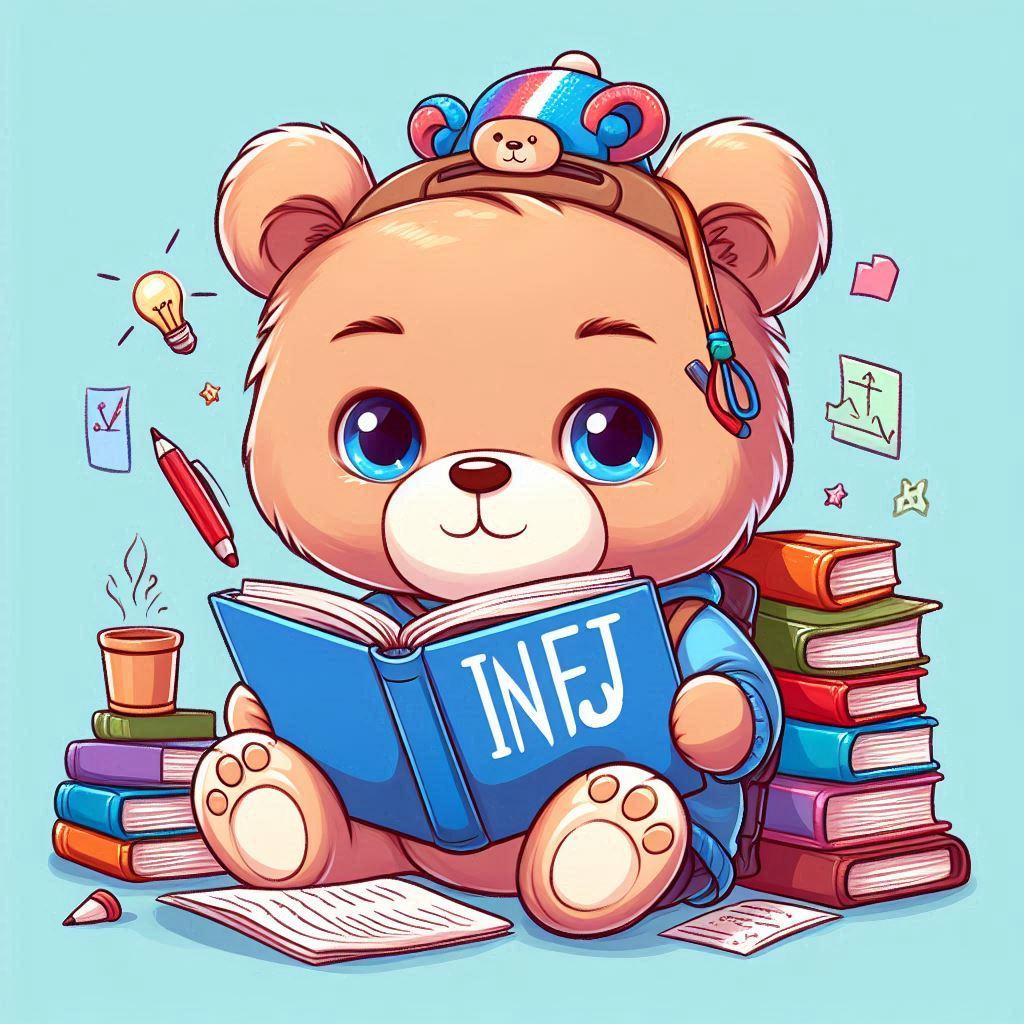At Bearbei.com, we're deeply committed to helping every student thrive and achieve their fullest potential. Driven by this mission, we’re excited to offer a fresh and innovative approach to education—one that stands apart from what you might find on other platforms. We believe in making a meaningful difference in each student’s journey and are passionate about providing a solution that truly resonates with their individual needs and aspirations.
Just as we discussed in the "personalized learning" section, we aim to provide a solution that caters to as many types of students as possible. To achieve this, we have dedicated significant time to researching a method that can accomplish this goal. We believe that a psychological focus is the key ingredient of the solution.
According to the famous psychologist Carl Jung’s model of the eight cognitive functions, there are eight functions that express themselves in different ways: Fi (Introverted Feeling), Fe (Extraverted Feeling), Te (Extraverted Thinking), Ti (Introverted Thinking), Si (Introverted Sensing), Se (Extraverted Sensing), Ni (Introverted Intuition), and Ne (Extraverted Intuition).
If we were to discuss the eight cognitive functions within the educational context, we could arguably claim that in most Eastern countries, the focus is primarily on the Si (Introverted Sensing) function. In this scenario, the entire system is based on students' past experiences, which has now become the primary, and perhaps the only, standard by which students are evaluated within the educational system.
We are not saying that this approach is entirely wrong, but when taken to the extreme, we often neglect other important aspects. In fact, with this Si-dominant system, the direct feedback and praise given by the teacher or others can obviously have great advantages in motivating students to learn. However, if we pay closer attention to the general population of students, rather than just those who excel in this system, specifically those who use the Ne function the most, we will find that the Si-dominant system often suppresses students' willingness to learn.
In fact, our founder has been a victim of this problem. He realized that he enjoyed learning math and science around the age of 20. When he was in the first few years of elementary school, he was learning the concept of fractions in math. The teacher hand-drew two circles representing pizzas to teach the concept. However, one of the circles was obviously larger than the other. When the teacher asked him which piece was larger—one piece from the pizza divided into two pieces (the smaller one) or one piece from the pizza divided into three pieces (the larger one)—he knew from math that 1/2 is larger than 1/3. But in this case, the pizza with 1/3 was obviously larger than the 1/2 one. When he answered incorrectly, he was mocked by his peers.
There are more stories like this, but think about how a child would feel about learning math in such a situation. He gave up learning everything until he was in high school. In his 20s, he then realized that he enjoyed it.
Moreover, as we know from the book Passing Judgment by Terri Apter, and as we interpret one of the keynotes the book on this topic we are discussing, sometimes when praise becomes the primary fuel for students' willingness to study, it can lead to more problems rather than just fostering a desire to learn. It may have the opposite effect, as students might become dependent on praise to continue learning.
With all that being said, we are working diligently to provide a warm and kind platform. We are considering incorporating the MBTI theory into our app, as we believe that this addition will enable us to better support students in their unique ways.
Please note that the cover photo for this blog is an AI-generated image designed to fit the content and theme of the post. While it does not feature the Bearbei mascot, it was chosen to visually represent the concepts discussed, such as collaboration and personalized learning. We hope it enhances your reading experience and aligns with the innovative approach we’re exploring.
 Check Out Our APP
Check Out Our APP





